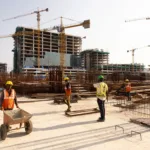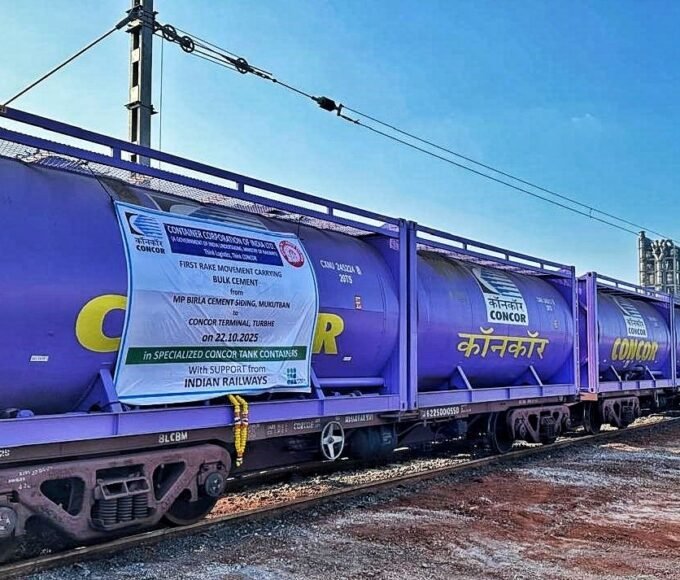Recent Posts
UltraTech Cement Completes 2.7 MTPA Capacity Expansion at Aligarh
February 6, 2026TNRERA Tightens Rules: Builders Must Deposit Extra 20% for Project Extensions Beyond One Year

In a move aimed at protecting homebuyers and discouraging delays in real estate projects, the Tamil Nadu Real Estate Regulatory Authority (TNRERA) has mandated that developers seeking extensions beyond one year must deposit an additional 20% of the total amount collected from allottees into the project’s designated escrow account.
This directive, issued under Section 7(3) of the Real Estate (Regulation and Development) Act, 2016, gives the Authority the power to impose further terms instead of cancelling project registrations outright. TNRERA officials stated that this measure is designed to ensure that funds collected from homebuyers are used exclusively for construction, helping prevent diversion of funds and further delays in project completion.
At present, the RERA Act already mandates that 70% of the amount collected from buyers be deposited in a separate project account to cover the cost of construction and land. However, project delays are still being reported, with one of the primary causes identified as inadequate funds available in the escrow account.
To address this, TNRERA’s new guideline states that if a builder applies for a registration extension exceeding one year, they must now deposit an additional 20% of the buyer collections into the account. This is intended to ensure sufficient liquidity for ongoing construction and increase accountability among developers.
However, the new regulation has raised concerns among small and mid-sized builders. “We usually invest our own capital to construct the initial phases of a project before receiving any buyer payments,” said S. Ramprabhu, chairman of the DTCP committee at the Builders Association of India. “If we haven’t collected much from buyers and are then asked to deposit 20% of it again, it puts immense pressure on our cash flow.”
Others in the industry echoed similar sentiments. G. Mohan, former president of the Chennai Southern Builders Association, noted that the regulation could be particularly unfair when delays are caused by unavoidable circumstances. “Natural issues like floods or extended monsoons are beyond a builder’s control. TNRERA should consider exemptions in such genuine cases,” he said.
Despite these concerns, homebuyer advocacy groups have welcomed the move, citing that project delays and misused funds are among the biggest complaints from real estate consumers. The new directive, they say, will force developers to be more financially disciplined and improve overall transparency in the sector.
With Tamil Nadu’s real estate market continuing to grow, especially in urban areas like Chennai and Coimbatore, the success of this regulation could set a precedent for other states looking to tighten RERA implementation.
Recent Posts
Railways Cut Freight Rates to Boost Bulk Cement Transport
February 9, 2026Bharat Future City Land Acquisition Picks Up Pace in Telangana
February 9, 2026Tata Steel Q3 FY26 Results: Net Profit Surges 723% to Rs 2,690 Crore
February 8, 2026Categories
- 20264
- Acquisition4
- Airport27
- AP152
- Apartments175
- Architecture4
- Bengaluru280
- Budget9
- Budget 202521
- Cement203
- Chennai515
- Coimbatore1
- Construction1,139
- Construction Material Price Updates1
- Copper1
- Corporation5
- CREDAI71
- Editors Pick43
- Equipment58
- Events13
- Export60
- GST18
- Highways137
- Hotel28
- Housing252
- Hyderabad131
- import64
- India385
- Industrial514
- Infrastructure828
- Interiors32
- Investment148
- Iron Ore99
- Karnataka130
- Kerala75
- Labour13
- Land210
- Leasing13
- Logistics96
- Market Updates671
- Metal172
- Metro124
- Mining120
- MSME23
- News2,170
- NHAI109
- Office Space21
- Paints43
- Port11
- Power Shutdown1
- Properties207
- Puducherry13
- Railways14
- Real Estate981
- REIT4
- Rental14
- Results11
- Road252
- Sand45
- Short News117
- SIPCOT26
- Steel Daily516
- Stocks105
- Tamil Nadu575
- Technology136
- Telangana145
- TIDCO19
- Tourism2
- Trade153
- Trending News1,194
- Trichy1
- Video2
- warehouse113
Related Articles
Railways Cut Freight Rates to Boost Bulk Cement Transport
Indian Railways has reduced freight charges for bulk cement movement to 85...
BySamrita JosephFebruary 9, 2026Bharat Future City Land Acquisition Picks Up Pace in Telangana
Land acquisition for the proposed Bharat Future City on the outskirts of...
BySamrita JosephFebruary 9, 2026Tata Steel Q3 FY26 Results: Net Profit Surges 723% to Rs 2,690 Crore
Tata Steel reported a sharp turnaround in the October–December quarter of FY26,...
BySamrita JosephFebruary 8, 2026Kerala Cabinet Clears Rs 600 Crore Land Acquisition for KSpace Aerospace Centre
The Kerala Cabinet has approved the acquisition of 60 acres of land...
BySamrita JosephFebruary 6, 2026















Leave a comment